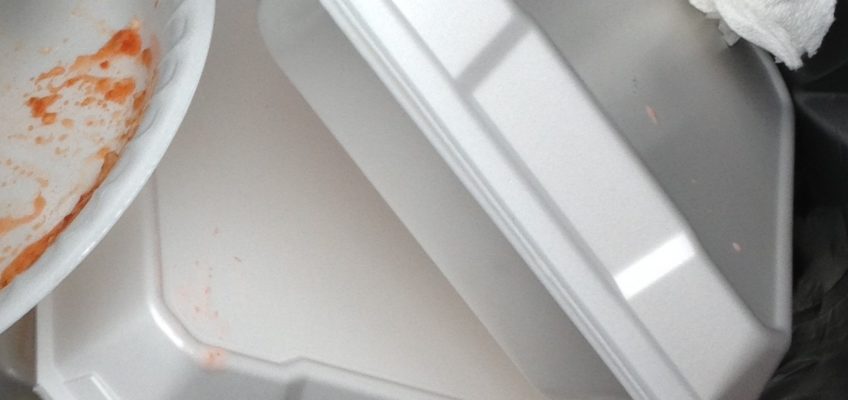WHEREAS, the District of Columbia has a duty to protect the natural environment, the economy, and the health of its citizens; and
WHEREAS, single-use disposable polystyrene plastics are widespread, persistent environmental pollutants; and
WHEREAS, polystyrene food ware is commonly used by foodservice establishments in the District of Columbia;
WHEREAS, polystyrene constitutes a significant portion of the litter in District of Columbia’s estuaries, streets, parks, and public places and the cost of managing this litter is high and rising; and
WHEREAS, small pieces of polystyrene are extremely difficult and costly to clean up, especially in creeks and waterways; and
WHEREAS, polystyrene is a pollutant that breaks down into smaller pieces that are ingested by aquatic life and other wildlife thus harming or killing them; and
WHEREAS, in some areas of the ocean, small plastic pieces outnumber zooplankton, which may impact marine life such as filter feeders; and
WHEREAS, plastic particles in the ocean may leach a range of chemicals such as bisphenol A and substances known as polystyrene-based oligomers, which are not found naturally; and
WHEREAS, trash assessments in the District of Columbia watershed identify disposable polystyrene food ware as a common element; and
WHEREAS, styrene is a known neurotoxicant and was elevated in 2011 from being a possible human carcinogen to being reasonably anticipated to be a human carcinogen; and
WHEREAS, styrene, the precursor to polystyrene, is a hazardous substance that has been shown to leach from polystyrene containers into food and drink and to leach in greater quantities when the food or drink are of high temperature or high fat content; and
WHEREAS, the general public is not typically warned of any potential hazard, particularly in immigrant and non-English-speaking communities; and
WHEREAS, due to these concerns, many cities in the United States have restricted the use of polystyrene food ware, and many small businesses and several national corporations have successfully replaced polystyrene and other plastic food ware with compostable products; and
WHEREAS, reusing food ware and using biobased or compostable take-out materials made from renewable resources such as paper, corn and sugarcane are effective ways to reduce the negative impacts of disposable food ware; and
WHEREAS, polystyrene products are made from non-renewable fossil fuel resources; and
WHEREAS, biobased or compostable food ware products such as cups, plates, bowls and hinged containers, and cutlery are increasingly available in the food service market, and are more ecologically sound over their life cycle than polystyrene; and
WHEREAS, many businesses throughout the country engage in organics recycling and have demonstrated that the use of compostable food ware can reduce disposal costs when the products are taken to composting facilities as part of an organics recycling program rather than disposed; and
WHEREAS, many haulers offer collection of source-separated food scraps and compostable foodservice packaging to the business sector in the District of Columbia, and the composting infrastructure in the region is growing; and
WHEREAS, restricting the use of polystyrene food ware in the District of Columbia will further protect the public health and safety of the residents of the District, the natural environment, waterways and wildlife;
THEREFOR…



